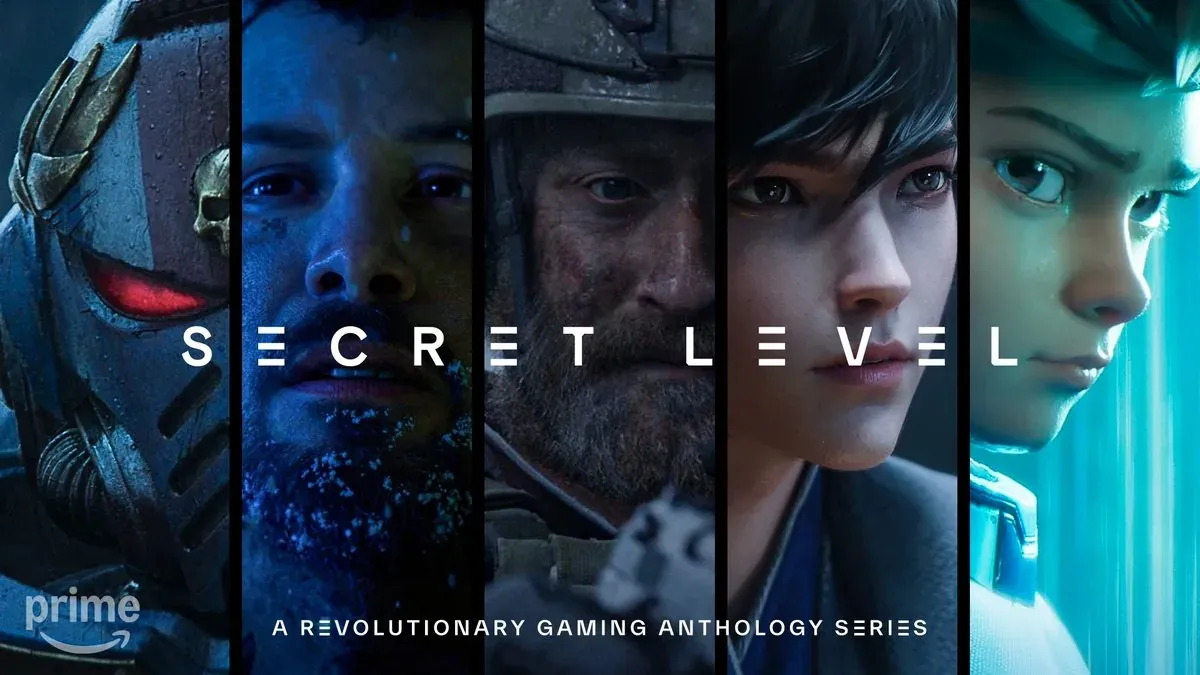
Secret Level is a big undertaking. With a lot of work put in by Blur Studios who makes incredible animated cutscenes and more, you figured it would be. Given the scale of this series, it makes sense that we take it on in a similar fashion. We’ve assembled a dream team of our own at GamingTrend to take a look under the hood, see what makes Secret Level tick, and give you their thoughts on why (or why not) you should spend time watching this highly advertised Prime Video show.
Nicholas Aguilera:
It’s no secret that Secret Level, the newest anthology series from Blur Studios, features some extraordinary animation, video game franchises, and voice talent. With such a talented studio at the helm of such an auspicious multi-license project, you’d think this anthology would be a home run, right? In some ways, yes, but less so in others. Secret Level manages to capture the style of the gaming franchises it represents, but not a lot of the substance.
If you’re familiar with big-name titles like Elder Scrolls Online, Call of Duty: Modern Warfare II, and League of Legends, you’ve likely already seen some of Blur Studios animation work. It goes without saying that this outfit, led by industry veteran Tim Miller, knows how to make some mind-blowing (and entertaining) animations.
Secret Level is no different – each episode features incredible animation. Some episodes go for photorealism, like the Dungeons and Dragons and New World: Aeturnum episodes, while others aim to capture the art styles of the respective franchises, like the Sifu and Spelunky episodes. Some go for new styles altogether, like the Pac-Man episode. Though the limited range of animation styles here do not stack up against Love, Death, and Robots, they are certainly impressive in their own right; Secret Level undoubtedly sets the bar for animated realism. However, it should be mentioned that the hyper-realistic episodes don’t manage to capture the flair exhibited by the episodes connected to established, colorful franchises. Don’t get me wrong, the animation is always impressive, but some episodes feel more striking than others due to this difference.
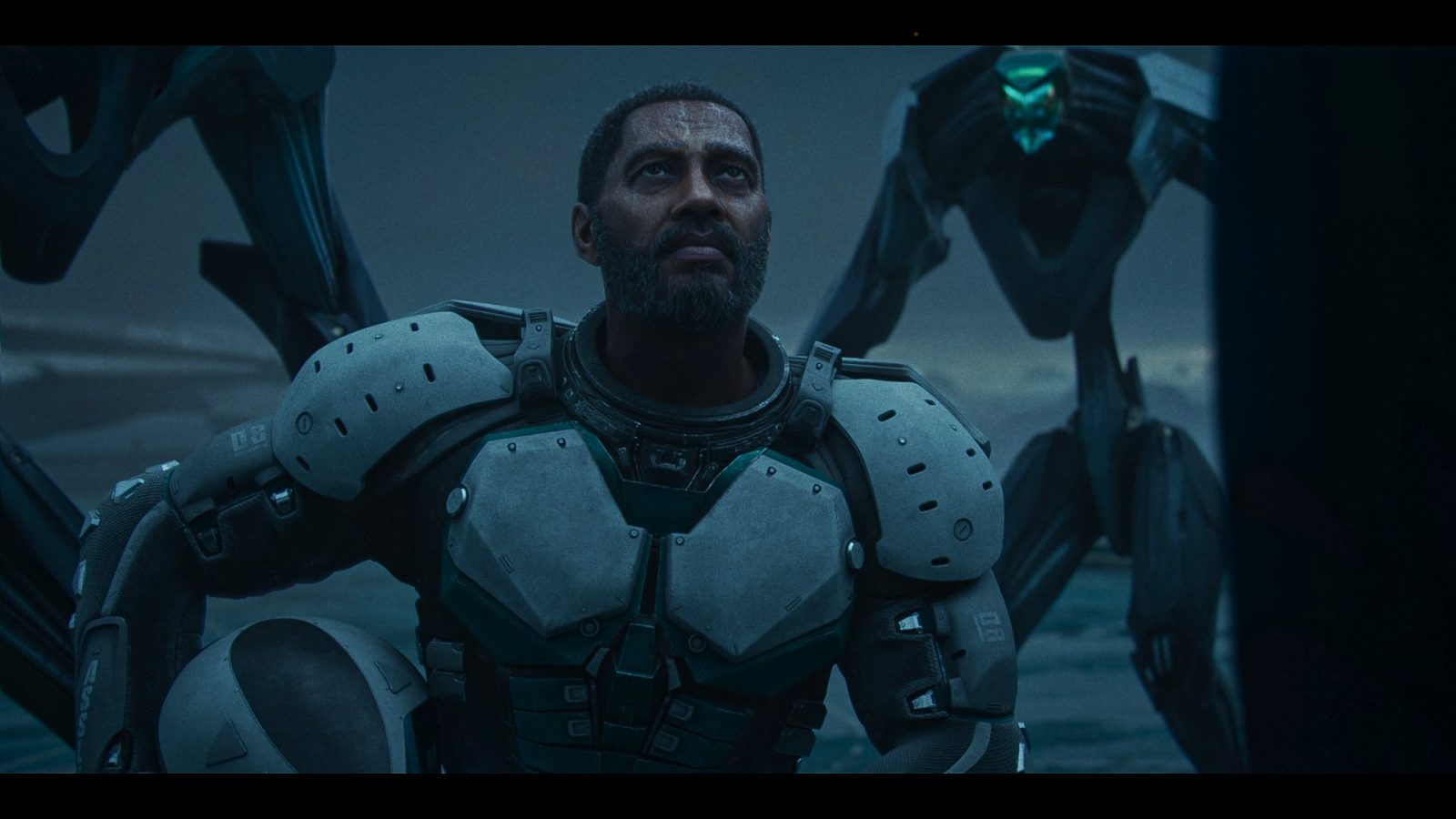
Most disappointing of all was the poor storytelling quality exemplified in many of the episodes. The narratives were lacking in comparison to the strength of the animation. The average episode length is about 13 minutes long, which is not a lot of time to grasp what each franchise brings to the table. For the IPs I didn’t know much about, I found myself distracted by what I didn’t know rather than what was happening during the episode. For the IP’s I did know a lot about, I found myself nitpicking what they decided to show and not show. Additionally, I found a few of the episodes downright derivative (I’m looking at you, Exodus), which was, frankly, distracting. There were standouts that managed to tell contained, satisfying stories, like the New World: Aeturnum and Unreal Tournament episodes, but sadly they were few and far between.
It was nice seeing diverse IPs get their time in the spotlight, but this was exactly what each episode of Secret Level felt like – a quick spotlight on a franchise, showcasing just enough to get you to go out and buy-in to a video game series or two. Cynically, Secret Level could be called a procession of commercials intended to get you interested in multimedia IPs. This would be a dismissive assessment though, as there is still a lot to like here. Impressive animation and artwork as well as bite-sized, action-packed episodes make for good popcorn entertainment – flashy and cool, sure, though ultimately a bit shallow.
Jack Zustiak:
In video games, secret levels are an expression of love. Developers include secrets to express themselves and give players something extra to experience. Players discover and complete secret levels by being curious enough to want to dig deeper into a game. Secret levels (at least the ones that are genuinely secrets) connect people to games in a way that’s priceless — they create the kind of love that money can’t buy.
In contrast, Secret Level is an expression of the love that money can buy. Secret Level focuses primarily on expensive games, realizes their world with expensive CGI, and uses expensive celebrity voice talent. Rather than giving you a deeper understanding or appreciation for the game worlds it features, Secret Level polishes over their surface leaving a shallow, deceptive sheen.
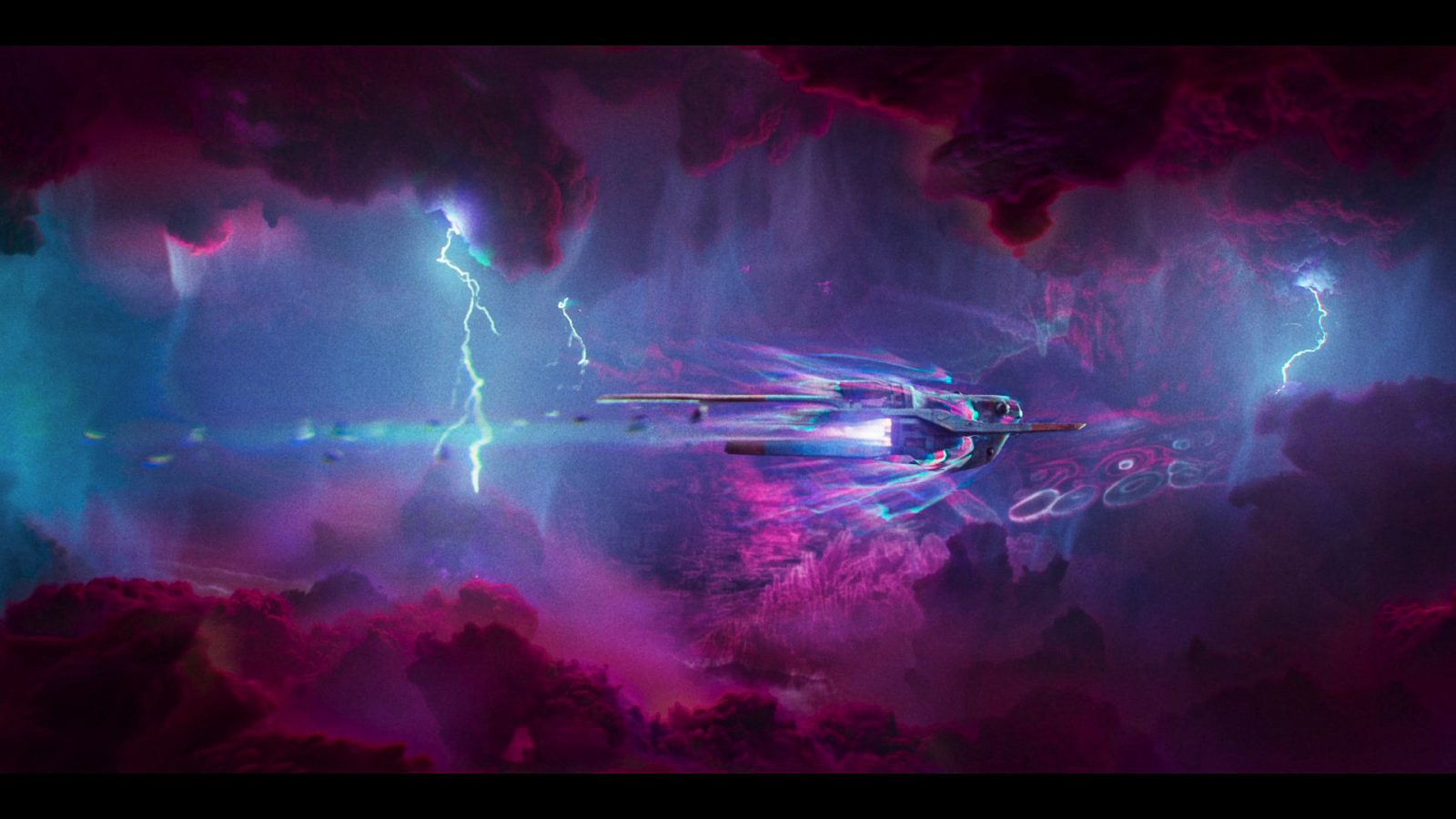
Secret Level adopts the role of a mercenary for hire, capturing the vague premise of its targets and converting them into a generic image of marketability. You don’t need to look much further than the inorganic and unexciting list of titles selected to see what I mean. New World: Aeternum, Honor of Kings, Exodus, Crossfire, and perhaps most notably Concord – even most dedicated gamers will likely struggle to muster any enthusiasm for episodes about titles like these. I hadn’t even heard of half the titles featured and I’m not exactly new to the hobby.
Even if you do enjoy these games, however, do you enjoy them for the reasons Secret Level portrays? Just taking a cursory glance at titles I was unfamiliar with gave the impression that Secret Level works hard to pull something out of nothing. Do people play Crossfire because of its morally ambiguous setting? Or do they play it because it’s a free and easily accessible shooter in countries that lack options? Do people play Honor of Kings because of its existential exploration of fate and the meaning of life? Or do people play it because it’s a free to play MOBA propped up by Tencent? I can’t pretend I know the answer to these questions because I can’t pretend to care about any of these games.
I can only spot the disconnect between the episodes and the game themselves. A running question characterized my time with each episode: would someone watching this show be able to tell what the game being portrayed actually plays like? In most cases, I doubt it. I suspect many will lament the “potential” of Concord based on its portrayal in Secret Level – but what did the Concord episode have to do with the Concord game? I watched the entire thing and couldn’t tell you why anything in it would make the game itself fun or appealing. I couldn’t even tell you what genre of game Concord is based on the show itself. Rather than capturing the essence or appeal of the games it targets, Secret Level fills the same role as dishonest CG trailers that plague the marketing for most big games.
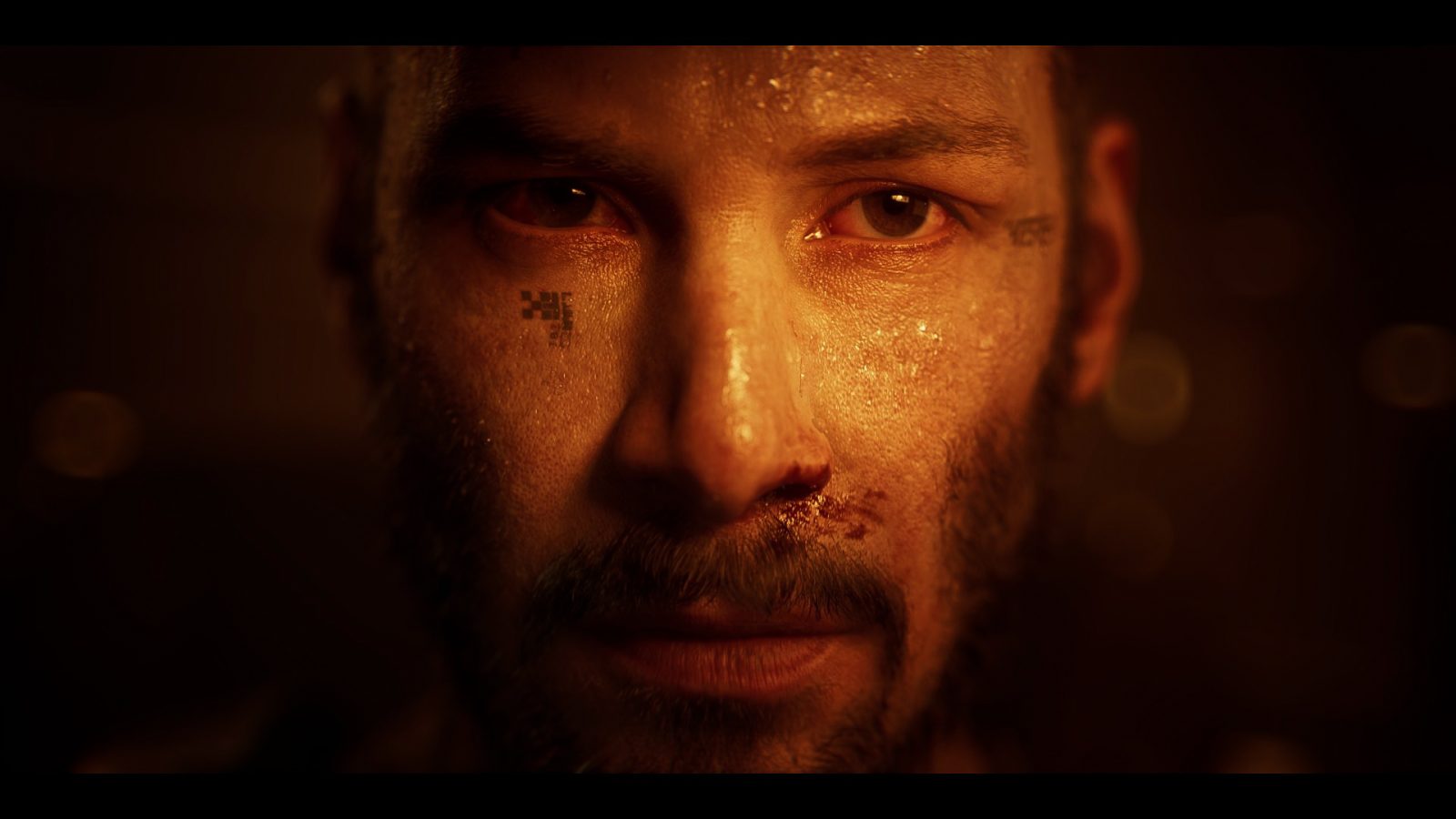
I felt this disconnect even more strongly for the games I did recognize. The Armored Core episode follows a cliffnotes version of Armored Core 6’s story, but executes them in a way that feels completely off from the appeal of its narrative. AC6 tells its story through disembodied voices, leaving the details of their appearances and everyday lives up to your imagination. This approach lets your mind wander about everyone’s motivations and how best to align yourself with them – it’s a vital component to the game. So naturally, Secret Level shows you exactly what the main character looks like, spells out how he thinks, what he does in his spare time, and fills every second of the episode with his constant crude banter. It’s exactly the kind of bland Hollywood portrayal of AC you’d dread seeing as a summer blockbuster, saved only by moments of the cool mech designs blowing each other up.
Similarly, Pac-Man opts to take you back into the past – not to the 1980s where Pac-Man originated, but to the early 2000s when edgy reboots of games were in vogue. Of course, the failures of games like Bomberman Act Zero and the Devil May Cry reboot call into question whether such things ever really were in vogue, and that hasn’t changed in the year 2024. Is it creative? That’s debatable. Is it interesting? I didn’t think so. The whole premise felt deeply out of touch both with the appeal of Pac-Man and the concept of being appealing at all. I got the sense that the Secret Level team convincing Namco to allow this episode to happen would make for a better story than the episode itself.
The Secret Level team were not wrong to take these games in a different direction, they were wrong to do so in such an uncaring and often uninteresting way. Whether anyone wants to admit it, the appeal of the games themselves are what’s going to get people to watch this show, yet that appeal rarely gets any credit. The few episodes that do try to wholeheartedly adapt the appeal of the games (Sifu, Spelunky, Unreal Tournament) are easily the best ones. In most cases, however, a Secret Level episode will simply override the premise of the game it portrays with something completely unrelated. Those episodes don’t portray the kind of love that secret levels imply, they portray the kind of love that money can buy.
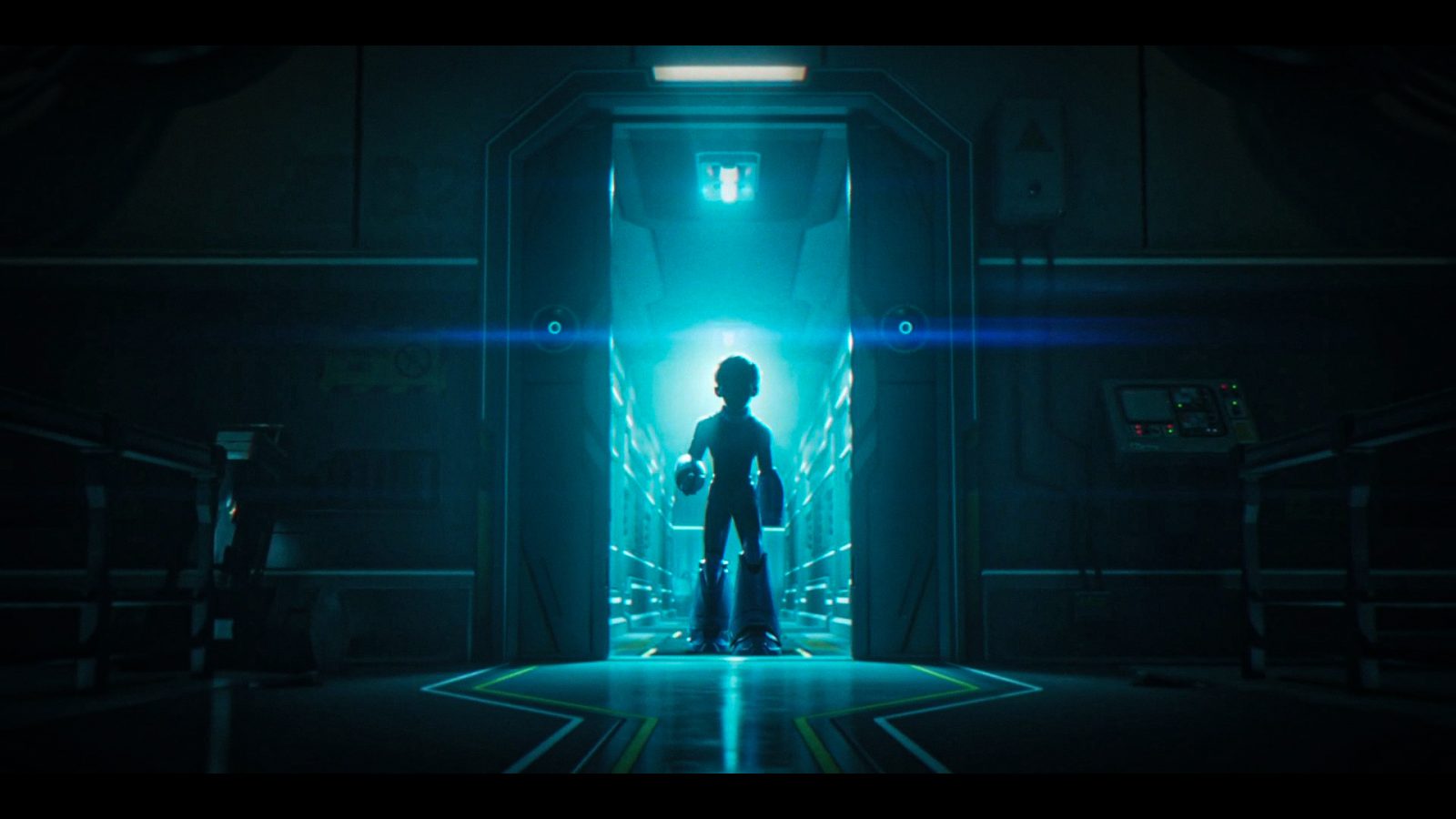
While that sums up my thoughts on Secret Level as a whole, I am contractually obligated to Mega Man himself to talk about the Mega Man episode. Like the Armored Core adaptation, Secret Level’s portrayal feels pretty Hollywood, but I found it far less grating. It flies by at a rapid pace (the whole thing is less than five minutes long!) and it doesn’t remove itself too deeply from established Mega Man lore, character designs aside. It’s an origin story, so if you know Mega Man’s history you’ll have a vague notion of the events that you’ll see.
The little things stood out to me the most. Mega Man going by his Japanese name “Rock” carries some interesting implications for how Capcom may be portraying the series in the future. Rock wearing his Dr. Light number (DLN) on his shirt is goofy. Rock sounds like a child rather than a 40 year old man, which is something not even the english version of Mega Man 11 got right, so I appreciate that. This episode features the only piece of music that I genuinely noticed in the entire Secret Level anthology: a little orchestral rendition of the Mega Man 2 Wily theme used to nice effect while Mega Man suits up.
Overall, Secret Level’s portrayal of Mega Man sits comfortably on the stronger end of the episodes. It didn’t blow me away, but it’s competently executed, even if the realistic design sense inherently mismatches with Mega Man’s style. If Mega Man were made into a summer blockbuster along these lines, which I suspect is Capcom’s ultimate ambition by getting involved with this project, I could see myself watching it. Or at least having it run on a TV in the background while I do something else!
John Farrell:
Secret Level leans too heavily on the games that inspired its stories, without meaningfully complementing them or building on their strengths. At the same time, it fails to tell stories of its own. Each of the episodes feels like the second act of a more developed tale that, only sometimes, you can find within the games. It feels like the creators are trying to get across the essence of the games they are working with, but their successes are rare with stories that can’t stand on their own. Too many episodes begin without context and end without resolution. Things are happening, but you won’t get filled in on what is happening or why most of the time. If you do understand that context, don’t be prepared to feel any sense of resolution, because Secret Level doesn’t offer any. The stories are not complete or cohesive, rounding out as a beefed up ad for the featured games. Even then, they barely capture the essence of what makes those games successful and engaging, despite the fact that they rely on the games for all of the weight and narrative that the episodes themselves don’t have the time to develop.

The reliance on in-game knowledge is not helped by the selection of featured games. I’ve been writing for a videogame-focussed website for around ten years, and I hadn’t even heard of every game featured. The ones I have played didn’t give a strong sense of enjoyment, and could barely summon a “Yeah I guess this is related to the game” at their strongest points. The visuals were strong, in the sense that they feel ripped out of cutscenes from the PS5, but with a rare few exceptions they didn’t have a strong enough sense of aesthetic to make for an impressive or enjoyable experience. Do you like the nearly colorless photorealism of modern graphically powered games? I don’t. It’s applied equally to settings whether or not it’s appropriate, rendering fantasy, science fiction, and grounded tactical shooter into the same bland, gray miasma that I thought we all got over in the early 2000s. If Secret Level was a Youtube channel and put these up every other week they might be impressive and mildly amusing. As a series it doesn’t hang together.
There just isn’t any substance to Secret Level. With episodes fewer than 20 minutes, some fewer than 10, you don’t feel the kind of experimentation or flair that would sustain your interest in this series. It’s hard not to compare this to Love Death and Robots, also created by Tim Miller. Where that series was free to tell a variety of stories with wildly different visual aesthetics, it left a strong impression with even some of its more middling episodes. You can tell that the creatives were let loose to push their talents and expand the scope of animation. Secret Level feels shackled to videogames that it isn’t all that interested in critiquing or even exploring.
This feels like a series of promos for games with visual and narrative styles that Secret Level doesn’t always match up with. If you have strong love for a specific game featured and the interest in checking out a 5-15 minute video loosely based off of it, you might be interested in stopping by Secret Level. I can’t imagine anyone sitting down to watch this straight through.
Secret Level
All Right
Secret Level is flashy with incredible visuals, but lacking cohesion and substance. This is due in part to its format, with quick episodes that don’t make it past surface level, never giving depth to the characters or worlds they live in. The choice of games is also somewhat confusing, with some on the roster that don’t make a lot of sense. Overall, it’s a pretty package, but one that leaves you wanting.
Pros
- Outstanding art design
- Willingness to try new things
Cons
- Lack of focus between narratives and selection of video games
- Doesn’t pull you into those games
